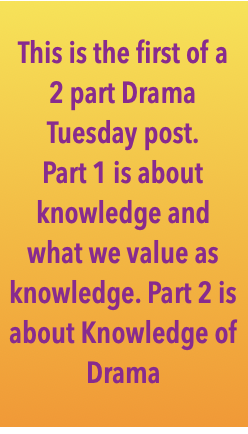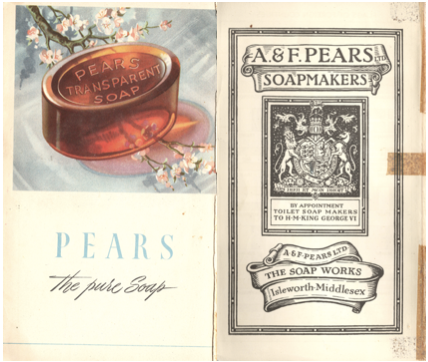Drama Tuesday - Knowledge and Learning (Part 1)
/How do you know what you know?
I’ve been thinking this week about the nature of knowledge and its role in learning.
This rather philosophical turn of mind has arisen, because I have been sorting through some very old books in preparation to send them off to the Save The Children Annual bookstall.
In my family when I was growing up. My mother had a copy of the Pears Cyclopaedia, 60th Edition (1950) . This was an annual publication that brought together in 992 pages of very fine print some key ideas about the world. There were sections about prominent people, history, a Gazetteer and a rather quaint 1940s Atlas of the World. English Dictionary, Synonyms and Antonyms, Classical Mythology, Health and Beauty, and sections on the new fangled Radio, Television and Radar. The publication was originally produced by the Pears soap company.
As well as the original one, over the years, I gathered a number of other editions (including a birthday present from Phillip). Sadly annual publication ceased a few years ago before I throw them out, I have taken the moment to fun through the rice paper thin pages and look at the nature of the way that we looked at knowledge then and now. Given that my mother in 1950 was living in isolated country Western Australia, this was obviously a treasured source of knowledge. Though, of course, the world of the Pears was narrower and coloured by British eyes. Even when I was growing up and buying my own copies of these publications, the world was narrower.
There was the time, and it’s in my life time at knowledge was contains mostly in books and, of course, word of mouth, person-to-person sharing of ideas. We relied heavily on libraries and these sorts of books. I still have fond memories of the chief librarian of University of Western Australia, and of course his team and the way they brought their version of knowledge to us but we always were presented with a curated knowledge chosen for us by others. Similarly, with our views of the world through newspapers and media.
Even in these days of so-called instantaneous knowledge of our fingertips on the computer keyboard, recent events in the world of politics in the USA and elsewhere remind us that we are always presented with someone’s point of view. Or, to put it another way, we need to filter the world by considering multiple points of view. Access to billions of bits of knowledge, does not necessarily make us wiser.
Quaint. But of interest to our wood cartographer grandson, William.
Hence my questions about the value of knowledge and the sorts of knowledge that matter. There has been a relatively virulent debate about “learning facts”. As a school student, we learnt all the Squares of numbers 1-39. We learnt lists of Masculine and Feminine nouns – Aviator and Aviatrix, for example (something that would shock our feminist friends). And there is an argument that we should not “burden” our minds with trivia that are good only for Pub Quiz nights.
But there is a counter argument that with our some knowledge, we are limiting our responses to the world as it rises up to meet us. Or rather, we need to reconsider learning in terms of applying knowledge, or “useful knowledge”
What is your construct of knowledge and knowing and its role in learning?
Read more in Part 2.









